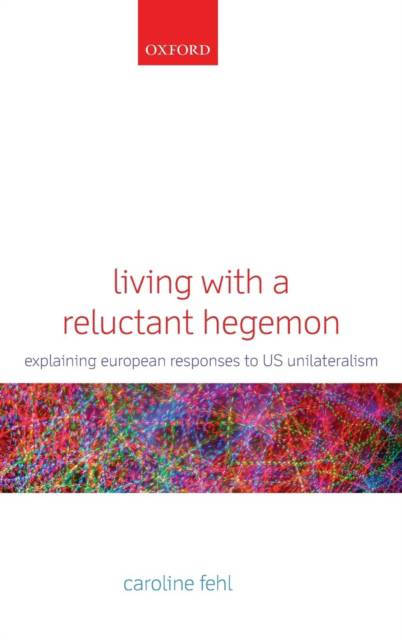
- Retrait gratuit dans votre magasin Club
- 7.000.000 titres dans notre catalogue
- Payer en toute sécurité
- Toujours un magasin près de chez vous
- Retrait gratuit dans votre magasin Club
- 7.000.000 titres dans notre catalogue
- Payer en toute sécurité
- Toujours un magasin près de chez vous
Living with a Reluctant Hegemon
Explaining European Responses to Us Unilateralism
Caroline Fehl
Livre relié | Anglais
156,95 €
+ 313 points
Description
Living with a Reluctant Hegemon addresses a striking puzzle in contemporary world politics: why have European states responded in varying ways to recent unilateralist tendencies in US foreign policy? The United States played a hegemonic leadership role in building the post-war multilateral order but has been reluctant to embrace many recent multilateral treaty initiatives championed by its traditional European allies, such as the Kyoto Protocol on climate change, the International Criminal Court, or the verification protocol to the Biological Weapons Convention. European responses to US objections, however, have varied across these different transatlantic controversies. In some cases, European decision-makers watered down or abandoned contested treaties, whereas in other disputes, they opted for regime-building excluding the US, that is, for a strategy of non-hegemonic cooperation. How Europeans choose to deal with the 'reluctant hegemon' has critical implications for how key global challenges are addressed--and yet, the striking variation of their responses has been largely overlooked in a scholarly debate fixated on understanding US unilateralism. Living with a Reluctant Hegemon fills this important gap by studying European strategic choices in five recent transatlantic conflicts over multilateral agreements. It argues that neither realist accounts of global power dynamics nor rational institutionalist models of cooperation can fully explain why Europeans opt for non-hegemonic cooperation in some cases but not others. To resolve this puzzle, we need to combine rationalist propositions with constructivist insights about normative constraints on states' institutional choices. By developing such an integrated model, the book sheds new light on the long-standing theoretical debate about the relationship between hegemony and international cooperation.
Spécifications
Parties prenantes
- Auteur(s) :
- Editeur:
Contenu
- Nombre de pages :
- 270
- Langue:
- Anglais
Caractéristiques
- EAN:
- 9780199608621
- Date de parution :
- 02-03-12
- Format:
- Livre relié
- Format numérique:
- Genaaid
- Dimensions :
- 155 mm x 234 mm
- Poids :
- 557 g







